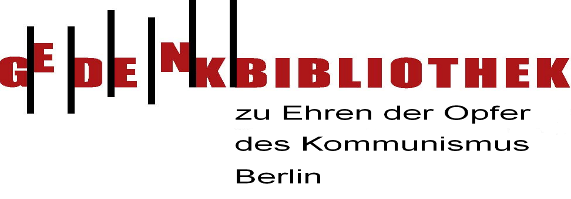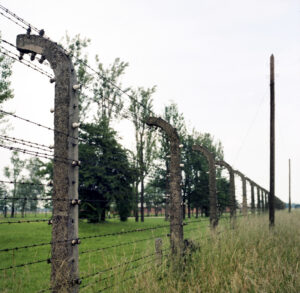KASTELEWICZ music in progress conducts research on musicological topics.
The
Bode Quartet
is a prizewinner of the Music Academy Rheinsberg and receives a working scholarship for the
Recording unpublished compositions from the special camps of the Soviet occupation forces
.
Works by Hans Wolfgang Sachse
29.03.2021
The
Music Academy Rheinsberg
with kind support of the scholarship program of Musikkultur Rheinsberg gGmbH

Berlin, Di. 5. Februar 2019, 18.00
Anna Barbara Kastelewicz,
violinist, concertmaster and musicologist gives her lecture with music on the theme:
Music in the Soviet Special Camps.
From 1945 to 1950, the Soviet occupation forces imprisoned a total of well over 120,000 people in 10 so-called special camps with total isolation of the prisoners from the outside world.

© J.Rötzsch
Any meaningful intellectual activity was strictly forbidden. Despite the ban, there were many clandestine, partly tolerated musical and other cultural activities of the prisoners (singing, rarely making music with makeshift instruments, lectures, poetry, arts and crafts (etc.), mainly to escape mental desolation. In (apparent or apparent) contradiction to this prohibition, there was the official “Kultura” and within its framework, among other things, concerts and theater performances by prisoners.
Location: Memorial Library in Honor of the Victims of Communism.
Nikolaikirchplatz 5-7
10178 Berlin
Anna Barbara Kastelewicz presents at the International Conference
Music and the Nation III
MUSIC IN POSTWAR TRANSITIONS
(19th-21st Centuries), International Conference, Montreal, 18-20 October 2018
Participation in the conference is supported by scholarships from:
research team « Musique en France aux XIXe et XXe siècles » (OICRM), Université de Montréal, Faculté de Musique
Kastelewicz, Anna Barbara – Mozarteum University Salzburg presents 19.Oktober 2018:
« Conquerors and Conquered : Music and Kultura in the Soviet Special Camps in Germany, 1945-1950 »
http://musiqueetsortiesdeguerres.org/en/call-for-papers/
The end of a war does not necessarily coincide with the signing of a peace treaty. This premise underlies the notion of the postwar transition, developed by historians over the past two decades. Contrary to traditional diplomatic history, research on postwar transition periods considers the restoration of peace as a dynamic and complex process involving different simultaneous temporalities. Traces of conflict continue to affect societies long after the negotiation of peace. These traces are explored from four angles: 1) the reopening of borders and the return of soldiers, prisoners, and exiles; 2) the reinterpretation of the image of the enemy; 3) memory of the conflicts; 4) ‘cultural demobilisation’. The latter concept provides an opportunity to explore the various paces within postwar transitions: the alleviation of physical and symbolic violence, the momentum produced by pacifist ideals, the rehabilitation of the enemy as well as mourning and grieving processes.
Although the role of art has been explored in recent work on the topic, music has yet to receive any attention. However, the transition from war to peace can be observed in the reconstruction of musical milieus and in musical production. Musical creation, practices, and sociability, the establishment of new repertories, and the resumption of symbolic works can facilitate—or delay—the process of cultural demobilization. The “Music and Postwar Transitions” conference presents an exceptional opportunity to fill this historiographical lacuna.
Copyright http://musiqueetsortiesdeguerres.org/en/call-for-papers
Information about the Conference:
http://musiqueetsortiesdeguerres.org/en/home/
Information about the Programme:
http://musiqueetsortiesdeguerres.org/en/program/
The musicological work is supported by scholarships from the University Mozarteum Salzburg and the AKB Foundation Einbeck.
Music in the Soviet Special Camps
From the end of the war in 1945 until 1950, the Soviet occupation forces imprisoned a total of well over 100,000 people in special camps, the Special Camps No. 1 – 10.
The special feature of these camps was the total isolation of the prisoners from the outside world – they were so-called “silence camps”. Any contact with the outside world or with relatives, the possession of paper and pencil, any meaningful intellectual activity (except playing chess) were strictly forbidden. Activity was only possible for a few prisoners in work crews to maintain camp operations. The prescribed inactivity meant in addition an extreme psychological strain, which intensified the physical hardship caused by hunger and disease. The death rate was about 30%.
Despite the ban, there were many clandestine, partly tolerated musical and other cultural activities of the prisoners (singing, rarely making music with makeshift instruments, lectures, poetry, handicrafts, etc.), mainly to escape mental desolation.
In (apparent or apparent) contradiction to this prohibition, there was the official “Kultura,” in the framework of which concerts, theatrical performances, and other events by imprisoned artists, often of the highest caliber, took place, at first open to Soviet camp personnel, and later to prisoners as well.
Anna Barbara Kastelewicz makes the source material accessible. Few scores have survived, in part as vocal remains. This rare treasure is secured, processed, analyzed, supplemented and arranged and made accessible to the public in moderated concerts.
Presentation on the memorial and remembrance meeting at the camp Mühlberg
09.09.2016
Anna Barbara Kastelewicz:
“Kultura” in the Soviet Special Camp No. 1 Mühlberg / Elbe
© Karsten Bär
with kind permission:
An article has appeared in the magazine “The Barbed Wire” No.6/2015 about the commemorative event on the 70th anniversary of the establishment of the NKVD camp No.9.
Anna Barbara Kastelewicz gave a lecture on her work at the event.

